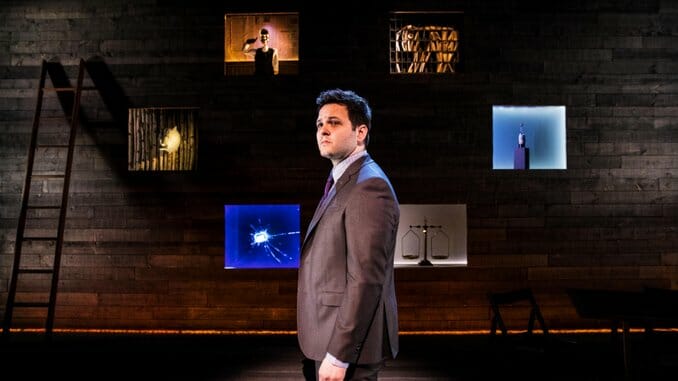What Is Derek DelGaudio Trying To Do?

“We are born knowing only truth. Then we see.”
—Ecclesiastes
This is the quote Derek DelGaudio uses as an epigraph in his book Amoralman, a memoir published this year with impeccable timing, coinciding with the Hulu release of In & Of Itself, the film adaptation of his long-running stage show. In more than one respect, the biblical koan is perfect for both works. First, there is the ambiguity, a hallmark of most magicians and a quality that DelGaudio uniquely extends into the emotional realm on both page and stage. Second, and most important, is the implication that the reality constructed for human beings—the things we “see”—are in fact a distortion which brings us away from, not closer to, the truth.
If you haven’t yet seen In & Of Itself, I’ll warn you that spoilers lie ahead, and that what follows is best read from a place of familiarity anyway. I’ll also relate the same very good advice that was given to me—see it without foreknowledge, and with as few preconceptions as possible. You already know enough, and if you’re at all in tune with the streaming world, you’ve probably heard plenty (positive and negative, perhaps) to intrigue you. Watch, then read.
![]()
-

-

-

-

-

-

-

-

-

-

-

-

-

-

-

-

-

-

-

-

-

-

-

-

-

-

-

-

-

-

-

-

-

-

-

-

-

-

-

-








































